June 2, 2025 | 00:56 GMT +7
June 2, 2025 | 00:56 GMT +7
Hotline: 0913.378.918
June 2, 2025 | 00:56 GMT +7
Hotline: 0913.378.918
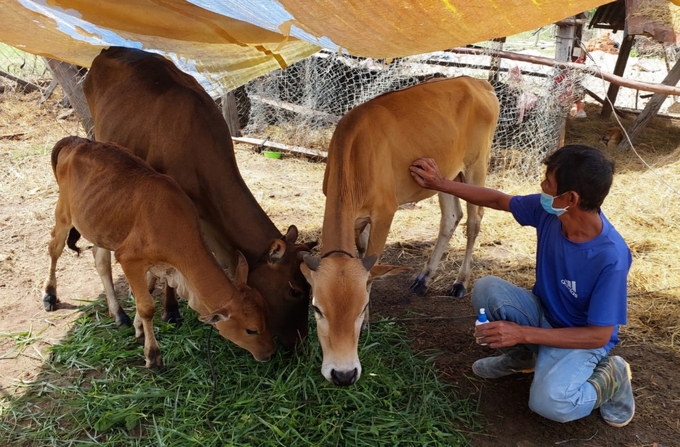
Veterinary officers "conversing" with the cows intimately before vaccinating them. Photo: D.L.
Even during the recent national holiday on September 2, K’sor Thanh (Ia O border commune, Ia Grai district) was not at home. “I spent my days off visiting the cows of villagers in the commune,” he said. Although he had no training or qualifications in the veterinary profession, K’sor Thanh has been a veterinary officer in Ia O commune for 15 years.
Before being selected as a veterinary officer of Ia O commune, K’sor Thanh was sent to attend a 3-month training course on farming and animal husbandry, then worked as an agricultural extension officer in Lan village, Ia O commune. Gradually getting used to the job, he was nominated by the commune chairman to be a commune-level veterinary officer.
When there was an epidemic, Thanh joined relevant units to help people isolate, suppress the epidemic and directly vaccinate livestock. “I once thought vaccinating cows was easy, but in fact it was very difficult and extremely dangerous. There were some difficult cows that had to be coaxed and ‘talked’ to before they would be vaccinated,” he said.
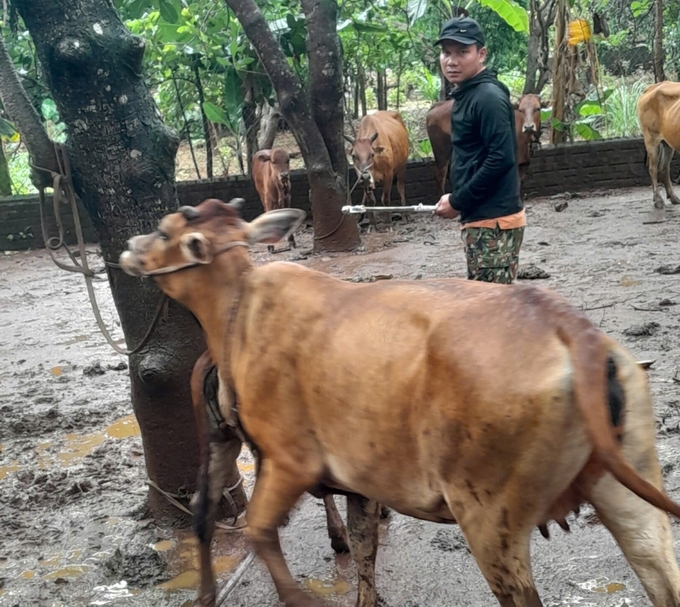
With aggressive cows, veterinary officers have to tie them to a tree and use an extended syringe to inject the vaccine. Photo: D.L.
As for Nguyen Viet Thuong, a veterinary officer of Ia K'rai commune, it is a different story. Thuong studied an Intermediate Course in Livestock Production and Animal Health in Ho Chi Minh city. After graduating, he spent time working as an animal husbandry technician for many farms in Dong Nai province. In 2009, fate brought him to settle down in Ia K'rai commune, and he has been a veterinary officer of the commune since then.
“It is very difficult to encourage farmers to graze livestock in concentrated areas and raise it in separate barns because people are used to natural grazing. However, with the participation of the government and organizations, people have gradually become accustomed to raising livestock in barns, which are hygienic and fully vaccinated. Farmers can manage their livestock, limiting the occurrence of diseases among their livestock,” Thuong said.
The border commune of Ia O has 9 villages. Some villages are nearly 30 km away from the commune center, such as Klong village, Bi village, and Cuc village. "Almost every day, I ride my motorbike to the villages to visit the people's cows, the round trip is over 50 km in total," said Thanh.
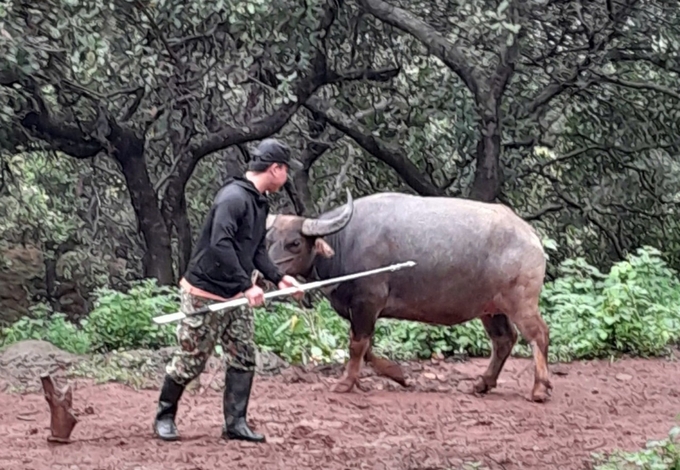
The extended injection system is effective. Photo: D.L.
As for Ia K'rai commune, there are 15 villages, each with a considerable distance between them. It is thus extremely difficult to "visit and examine" the commune's herd of nearly 2,000 cows. "Many days, I have to go to the villages at dawn. If I go late, the villagers will let the cows go out to graze, and it will be difficult to meet them all," said Nguyen Viet Thuong.
To avoid danger when vaccinating cows and to reduce the vaccination time, Thuong and Ngo Nhac Lam, a veterinary officer at the District Agricultural Service Center, came up with a good idea. They made their own extended injection needle by using a mop longer than 1 m, attaching a needle to the tip, and injecting the vaccine from a distance. "The injection can be done faster this way, reducing the danger every time we encounter an aggressive cow," said Thuong.
Despite the difficulties and dangers, the income of commune-level veterinary staff seems to be too “modest”. In the case of K'sor Thanh, who has been working as a veterinary officer in the border commune of Ia O for 15 years, his monthly allowance is only VND 3.5 million. As for Thuong, with full professional qualifications and enthusiasm, he only receives an allowance of VND 3.1 million per month.
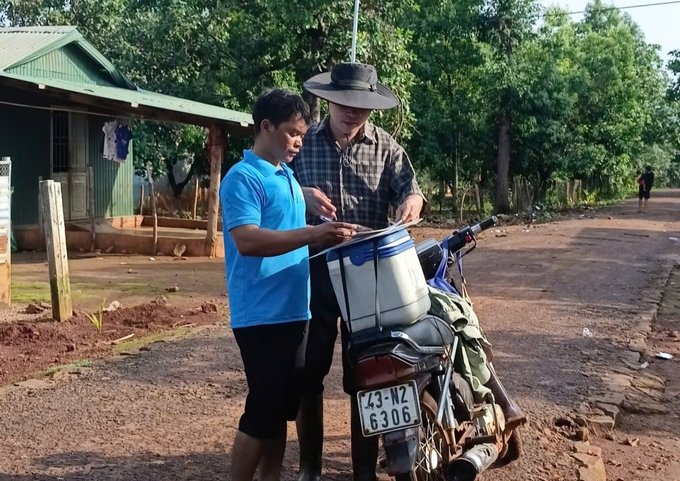
Preparation before the vaccination. Photo: D.L.
According to Thai Van Dung, Head of the Gia Lai Sub-Department of Livestock Production and Animal Health, 181/220 communes, wards and towns in the province currently have veterinary staff, 32/220 communes, wards and towns have people doing other jobs concurrently as commune-level veterinary officers, and 7/220 communes, wards and towns do not have people doing veterinary work.
“The commune-level veterinary force is lacking, not to mention limitations in terms of veterinary expertise. The salary for commune-level veterinary officers is not commensurate with the actual work conditions, so it is hard to attract or retain them to the profession. Accordingly, disease surveillance and implementation of disease prevention measures are not timely and effective,” said Thai Van Dung.
Translated by Samuel Pham
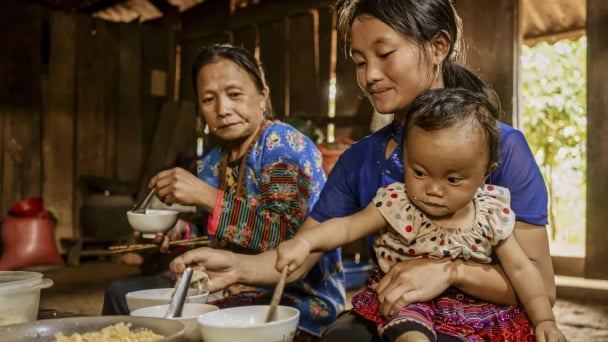
(VAN) 30 experts in health, agriculture and environment participated in a consultation workshop to inform the development of a methodological framework aimed at supporting Vietnam’s transition to a sustainable food system.
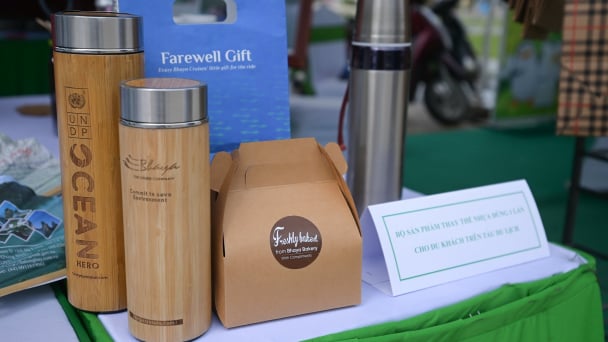
(VAN) Over the past five years, Quang Ninh Province has vigorously and synchronously implemented the ‘Say No to Plastic Waste’ campaign, yielding positive outcomes in advancing sustainable tourism.

(VAN) The prevention of plastic pollution necessitates collaboration among governments, businesses, and citizens. Today's little things contribute to a future free of plastic.

(VAN) This was the directive given by Deputy Minister Phung Duc Tien during a meeting with the Department of Livestock Production and Animal Health, and relevant stakeholders to prevent and control African swine fever.
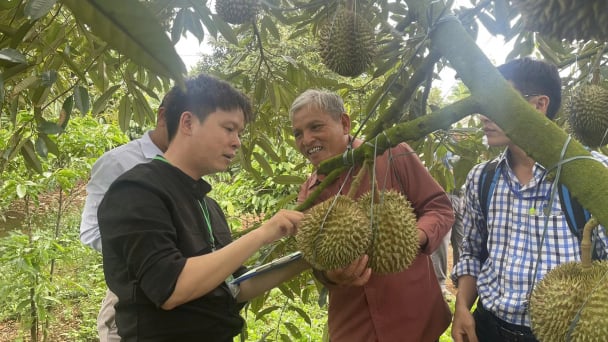
(VAN) For the durian industry to succeed, the value chain must fulfill its commitments to the government, the community, and international partners.

(VAN) Vaccinating juvenile pangasius helps reduce disease, antibiotic use, and farming costs, increasing profits for export-oriented farmers in An Giang.

(VAN) Due to a limited supply of workforce and competitive recruitment requirements, businesses struggle to retain talented veterinary human resources.